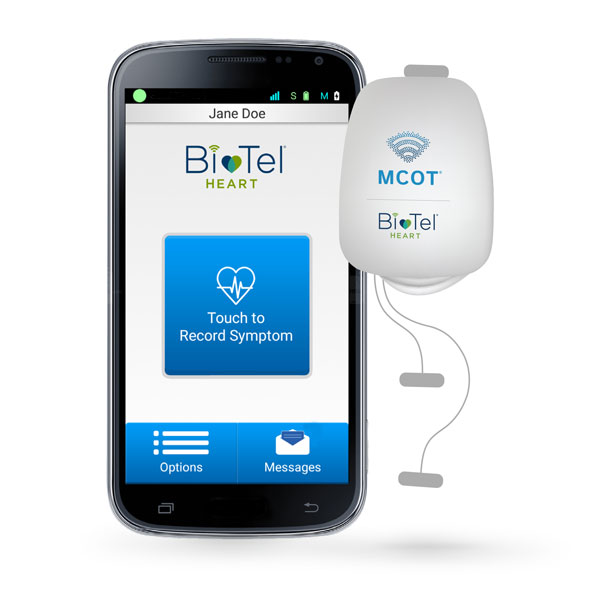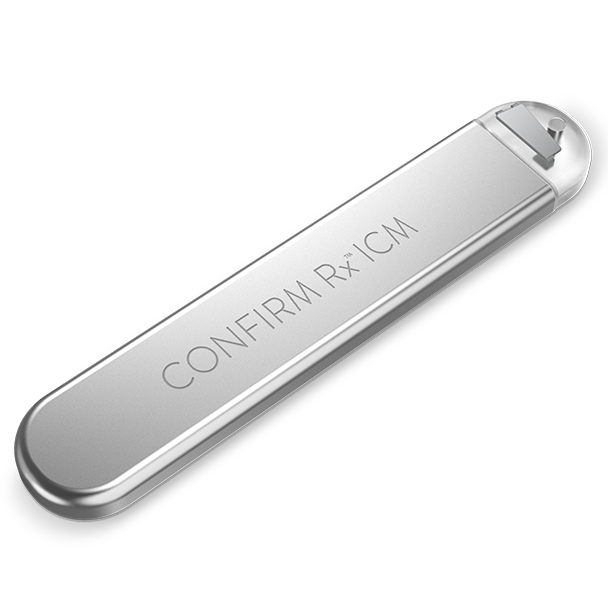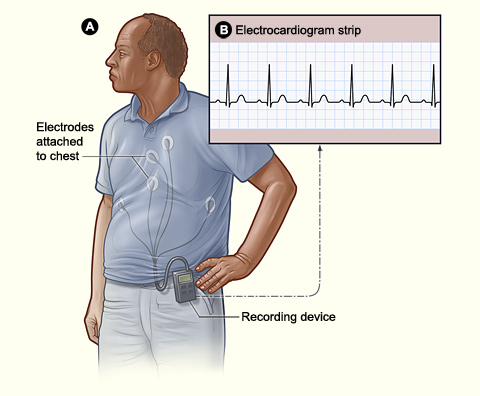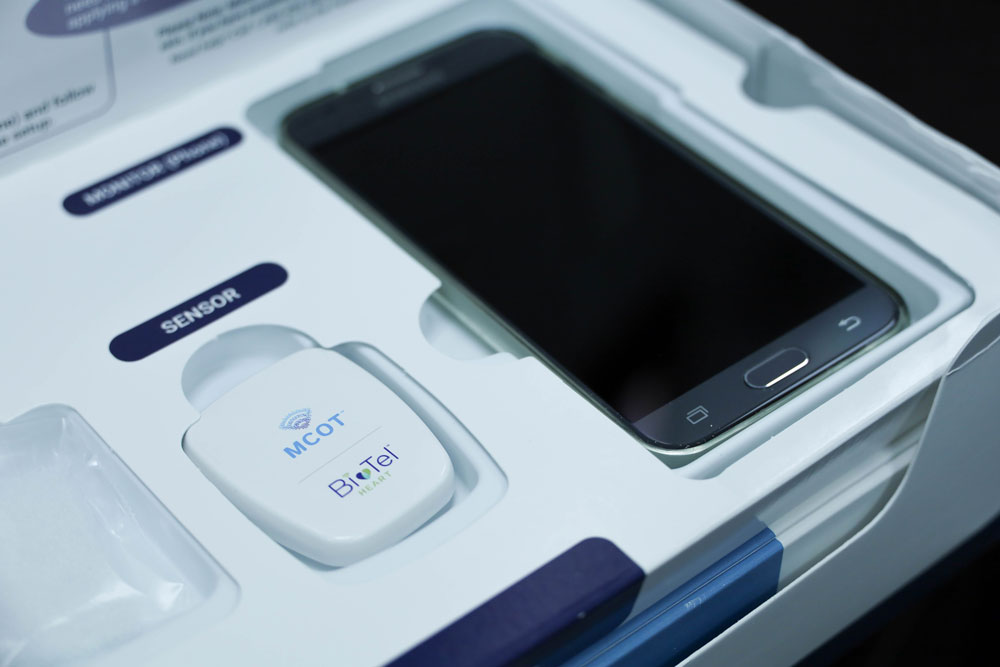Holter and Event Monitors & Loop Recorders
At Cardiovascular Interventions, we strive to utilize the latest and greatest technologies. Depending on what monitoring device you are prescribed, reports maybe sent to us remotely meaning less office visits for you.
What is an Event Recorder?
An Event recorder is a valuable test to detect intermittent arrhythmias which are unlikely to be detected within 24 hours. An event recorder is temporarily kept by a patient for 2-4 weeks. This will automatically transmit arrhythmias to our office 24 hours a day. Further, a patient initiated transmission can correlate symptoms to objective arrhythmias.

What is a Loop Recorder?

An Implanted Loop recorder is a small heart rhythm recording device that is placed under the skin on the left side of the chest with the use of local anestheic. This stores any abnormal rhythms for up to 2 years.
A loop recorder is most useful in patients who are having rare, but severe symptoms such as black outs. This is useful in detecting arrhythmias that are missed by other methods.
What is a Holter Monitor?
A Holter monitor is a machine that continuously records the heart’s rhythms. The monitor is usually worn for 24 – 48 hours during normal activity. Electrodes (small conducting patches) are stuck onto your chest and attached to a small recording monitor. You carry the battery-operated Holter monitor in a pocket or small pouch worn around your neck or waist.
While you wear the monitor, it records your heart’s electrical activity and you will. During that same period, you will keep a diary of what activities you do while wearing the monitor and how you feel. After the return the monitor to your doctor’s office after 1-3 days, the doctor will look at the records and see if there have been any abnormal heart rhythms.

What is a T Wave Alternans test (TWA)?
The T Wave Alternans test (TWA): is an expanded electrocardiogram performed with a heart rate of 110. This is beneficial in detecting susceptibility to ventricular tachycardia/ ventricular fibrillation. These arrhythmias cause sudden death. Its detection is often elusive and causes death. The t-wave alternans study is done in our exercise stress laboratory an only takes 20 minutes to perform.

